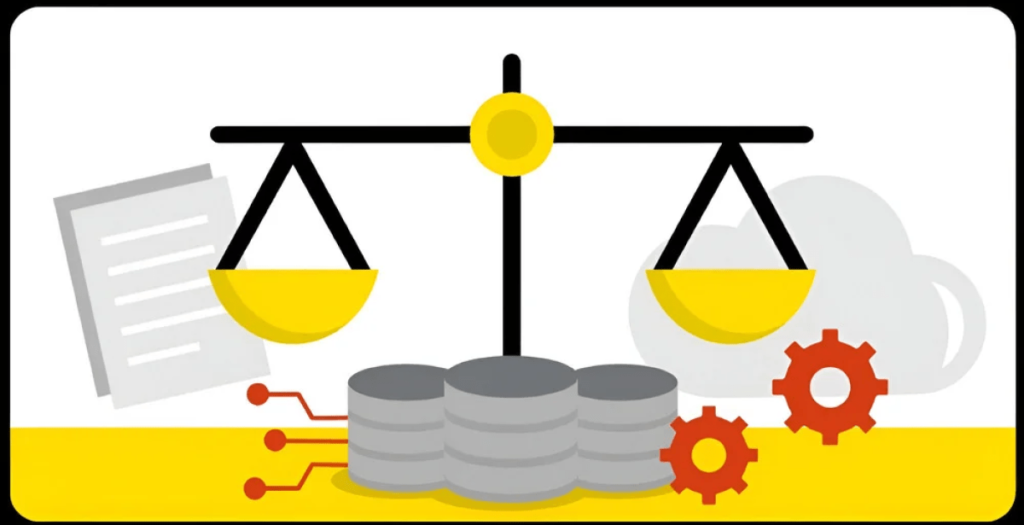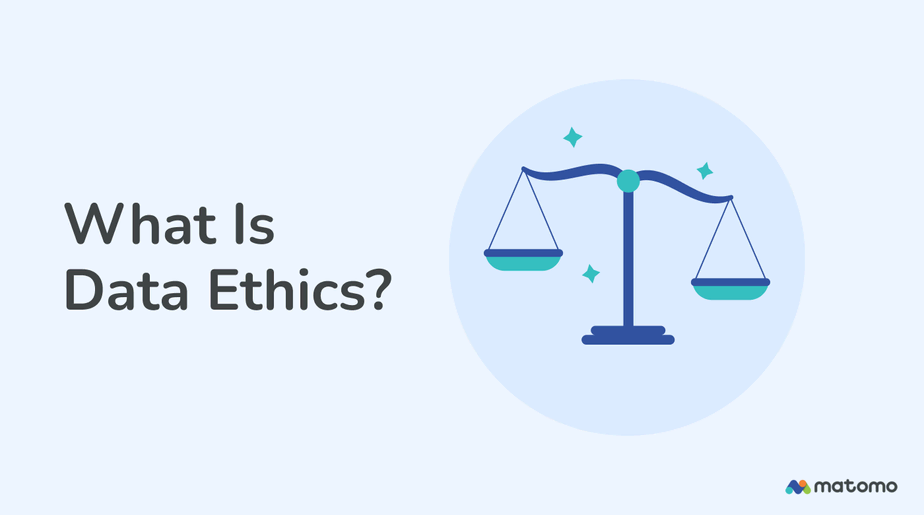Have you ever wondered about the fine line between data sharing and privacy? In a world where data drives decisions and innovations, it’s essential to consider how your information is used and protected. Today, you’ll gain insights into the realms of data ethics and privacy, particularly focusing on GDPR and HIPAA, two significant frameworks that govern the handling of personal data.

Understanding Data Ethics
Data ethics refers to the moral principles that guide the collection, use, and dissemination of data. As you navigate the digital landscape, it’s crucial to consider ethical practices, not only to comply with regulations but to build trust with users and stakeholders.
Why is Data Ethics Important?
You might ask: why should you care about data ethics? Here are a few reasons:
- Trust: Ethical data practices foster trust with your audience. When people know that their data is being handled responsibly, they are more likely to engage with your services.
- Compliance: Adhering to ethical data practices helps ensure compliance with laws and regulations, reducing the risk of legal repercussions.
- Better Decision Making: Ethical considerations can lead to more informed and responsible decision-making processes in your organization.
Key Principles of Data Ethics
To understand data ethics better, let’s break down some key principles:
| Principle | Description |
|---|---|
| Respect for User Privacy | Acknowledging the importance of user privacy rights and taking steps to protect personal data. |
| Transparency | Being open about how data is collected, used, and shared. |
| Accountability | Taking responsibility for data practices and the impact they have on individuals. |
| Fairness | Ensuring data practices do not discriminate against any group or individual. |
Embracing these principles will help you align your practices with ethical standards and create a culture of respect and accountability.
Data Privacy: An Overview
Data privacy encompasses the practices and policies that protect personal information from misuse and unauthorized access. Understanding data privacy is crucial for both individuals and organizations, as misuse of data can lead to severe consequences.
The Growing Need for Data Privacy
With increasing amounts of data being collected, the need for robust privacy measures becomes more significant. Consider the following points:
- Data Breaches: High-profile breaches have occurred, leading to public outcry and loss of customer trust.
- User Awareness: As more individuals become aware of their data rights, they demand greater privacy protections.
- Regulatory Requirements: Governments around the world are implementing stricter data protection laws, which means organizations must adapt to stay compliant.
A Closer Look at GDPR
The General Data Protection Regulation (GDPR) is a comprehensive privacy law that governs the handling of personal data within the European Union (EU). It’s essential to familiarize yourself with GDPR, especially if you operate within or engage with European customers.
Key Aspects of GDPR
Understanding the main components of GDPR can help you grasp its significance and how it affects your data practices.
| Aspect | Description |
|---|---|
| Applicability | Applies to any organization processing personal data of EU residents, regardless of location. |
| Consent | Requires clear and affirmative consent for processing personal data. |
| Data Subject Rights | Grants individuals rights such as access, rectification, erasure, and data portability. |
| Data Breach Notification | Mandates organizations to notify authorities and affected individuals of data breaches within 72 hours. |
| Fines and Penalties | Violations can result in significant fines of up to 4% of annual global revenue or €20 million, whichever is greater. |
Data Subject Rights Explained
One of the most impactful aspects of GDPR is the rights it grants to individuals. Here’s a closer look at these rights:
- Right to Access: Individuals can request details about how their data is processed.
- Right to Rectification: Users have the right to correct inaccurate data.
- Right to Erasure: Also known as the ‘right to be forgotten,’ this allows users to request the deletion of their personal data.
These rights empower individuals and promote transparency in data handling.
The Role of Data Protection Officers
Under GDPR, many organizations must appoint a Data Protection Officer (DPO). This role is critical in ensuring compliance with data protection regulations. A DPO is responsible for:
- Monitoring data processing activities.
- Advising on data protection obligations.
- Acting as a liaison between the organization, users, and regulatory authorities.
An Overview of HIPAA
The Health Insurance Portability and Accountability Act (HIPAA) is a U.S. law designed to protect sensitive patient health information from being disclosed without the patient’s consent. If you are in the healthcare sector, it’s vital to understand HIPAA to maintain compliance and protect patient privacy.
Key Components of HIPAA
Here are some critical components of HIPAA that you should be aware of:
| Component | Description |
|---|---|
| Privacy Rule | Establishes national standards for the protection of health information. |
| Security Rule | Sets standards for safeguarding electronic protected health information (ePHI). |
| Transaction and Code Sets Rule | Standardizes electronic healthcare transactions to improve efficiency. |
| Identifier Standards Rule | Establishes identifiers for providers, health plans, and employers to facilitate administrative processes. |
HIPAA Compliance Requirements
Compliance with HIPAA is not optional for covered entities in healthcare. Here are essential aspects of compliance:
- Safeguards: Implements administrative, physical, and technical safeguards to protect health information.
- Training: Regular training for employees on HIPAA regulations and security practices.
- Incident Reporting: Procedures for reporting breaches and violations promptly.

The Intersection of Data Ethics and Privacy Laws
As you navigate the landscape of data ethics and privacy, you’ll find that these two areas are intricately connected. Ethical considerations often inform the creation of privacy laws, aiming to protect individuals while allowing for data innovation.
Ethical Considerations in GDPR and HIPAA
When analyzing GDPR and HIPAA, certain ethical considerations surface:
- Informed Consent: Both regulations emphasize the need for individuals to provide informed consent, reinforcing the ethical principle of respect for user privacy.
- Minimal Necessary Standard: HIPAA introduces the concept that only the minimum necessary information should be shared for health care delivery, reflecting an ethical approach to data sharing.
Challenges and Opportunities
Adhering to ethical data practices while complying with laws like GDPR and HIPAA can pose challenges. Some common challenges include:
- Balancing Compliance and Innovation: Organizations may struggle to innovate while ensuring compliance with stringent regulations.
- Resource Allocation: Accessible resources may hinder compliance efforts, especially for smaller organizations.
However, these challenges offer opportunities for growth and improvement. Understanding the laws thoroughly can lead to establishing a robust data governance framework, enhancing both ethical practices and compliance efforts.
Best Practices for Ethical Data Handling
To cultivate a culture that emphasizes ethical data practices, consider these best practices:
1. Build a Data Governance Framework
Establishing a data governance framework is crucial for maintaining accountability. This framework should outline roles, responsibilities, and procedures for data handling.
2. Educate and Train Staff
Regular training is essential to ensure that all employees understand their obligations under data privacy laws and ethical principles. Conduct workshops and training sessions to reinforce these concepts.
3. Implement Consent Management Processes
Create clear and user-friendly consent management processes to enable individuals to understand and control their data. This transparency builds trust.
4. Monitor and Audit Data Practices
Regular audits help identify gaps in compliance and ethical practices. By monitoring your data handling processes, you can take the necessary steps to rectify any issues.
5. Foster Transparency
Be transparent about your data practices. Inform individuals about how their data is collected, used, and shared. Transparency is integral to building trust.

The Future of Data Ethics and Privacy
Looking ahead, the landscape of data ethics and privacy regulation is expected to evolve. With growing technological advancements, you should stay informed about emerging trends and potential regulations. Here’s what to keep an eye on:
Artificial Intelligence and Data Ethics
The rise of artificial intelligence (AI) poses unique challenges for data ethics. As AI systems often rely on massive datasets, ethical considerations about bias, transparency, and accountability become increasingly important. You’ll want to think about how your organization addresses these challenges.
Global Data Protection Trends
As data breaches become more frequent, other countries may implement GDPR-like regulations. Staying aware of global trends in data protection laws will allow you to adapt your practices and remain compliant across different jurisdictions.
User Empowerment and Control
As users become more aware of their data rights, demand for greater control over personal data will increase. Organizations will need to prioritize user empowerment, reinforcing ethical considerations in their data practices.
Conclusion
Navigating the complex landscape of data ethics and privacy is a priority in today’s digital world. Understanding frameworks like GDPR and HIPAA is essential for maintaining compliance and building trust with your audience. By emphasizing ethical data practices, you not only protect individual rights but also enhance your organization’s reputation and credibility.
In the rapidly evolving landscape of data, you have the power to make informed choices about how you handle data. Remember, practicing data ethics isn’t just about compliance; it’s about fostering trust, respecting individual rights, and promoting a positive relationship with the data you collect. Embrace these principles, and you’ll contribute to a world where data is used ethically and responsibly.

